Same-Sex Marriage: A Sociological Perspective on US Laws and Society
VerifiedAdded on 2022/10/08
|21
|2803
|39
Presentation
AI Summary
This presentation offers a sociological analysis of same-sex marriage in the United States, covering its historical evolution, legal frameworks, and societal perceptions. It begins with an overview of key events, including the 2015 Supreme Court decision, and explores the interplay of socioeconomic, religious, and cultural factors. The presentation delves into the evolution of social movements advocating for LGBT rights, the development of anti-discrimination laws, and the role of sociological theories such as functionalism, conflict theory, symbolic interactionism, and queer theory in understanding the issue. It also addresses the impact of uncertainty on stakeholders, tactics used by activists, and shifts in public opinion. The presentation concludes with a discussion on the potential effects of same-sex marriage on society and provides relevant references. The assignment fulfills the requirements of the course by analyzing the evolution of social movements, the application of sociological theory to understand disparities in political power, analyzing the evolution of anti-discrimination law, and addressing questions reflecting public perception using supporting data or research.
1 out of 21
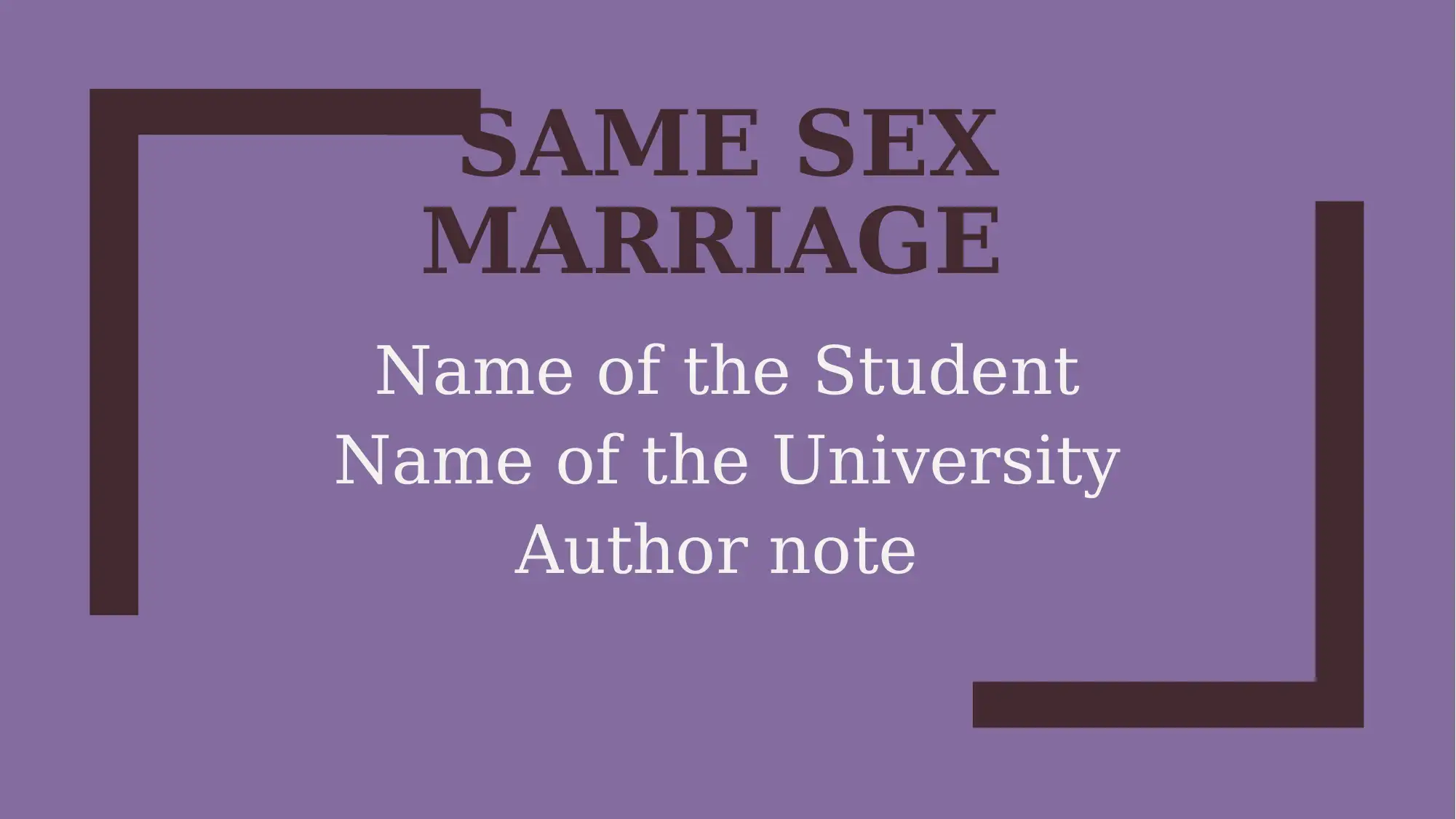
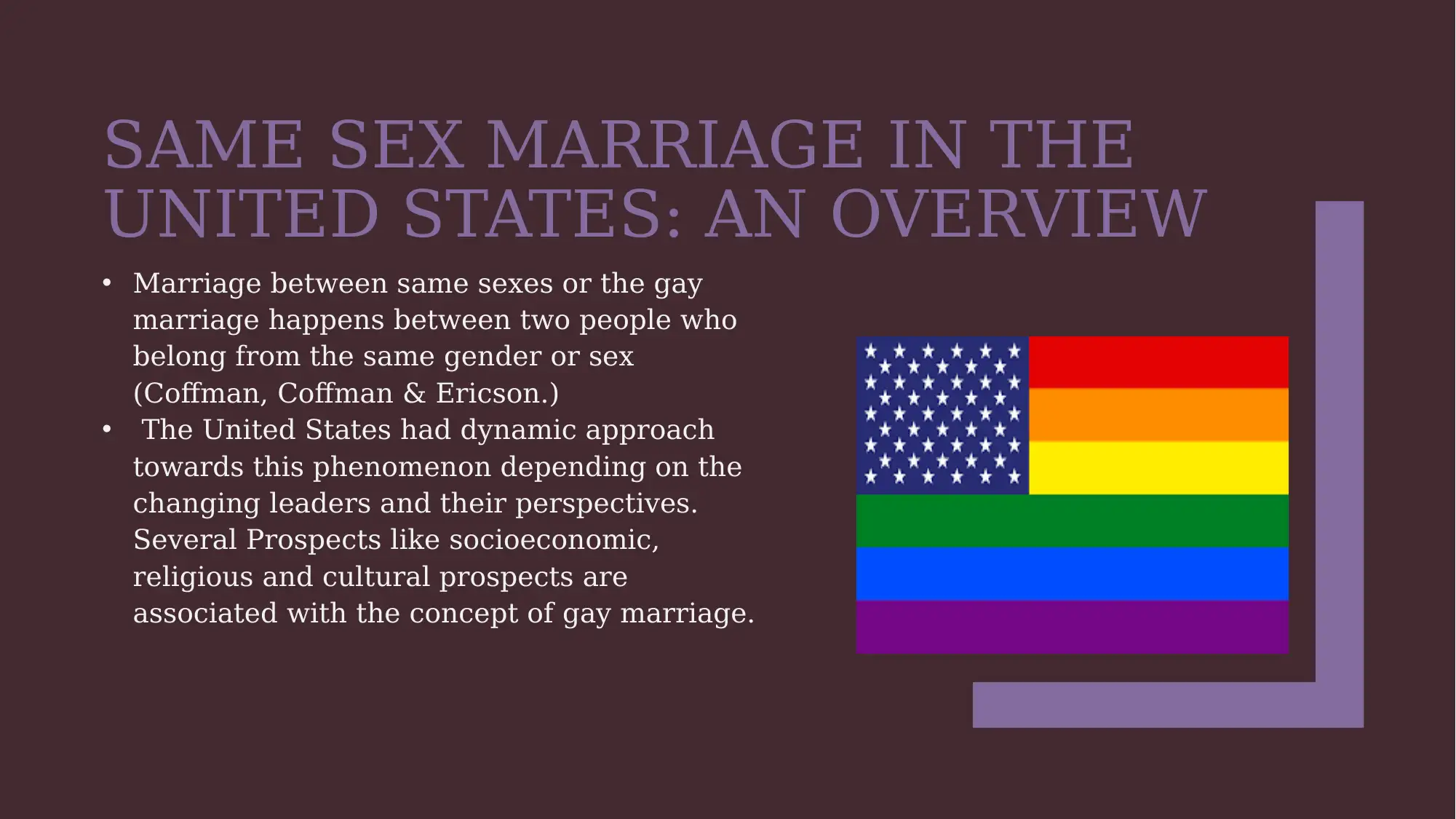
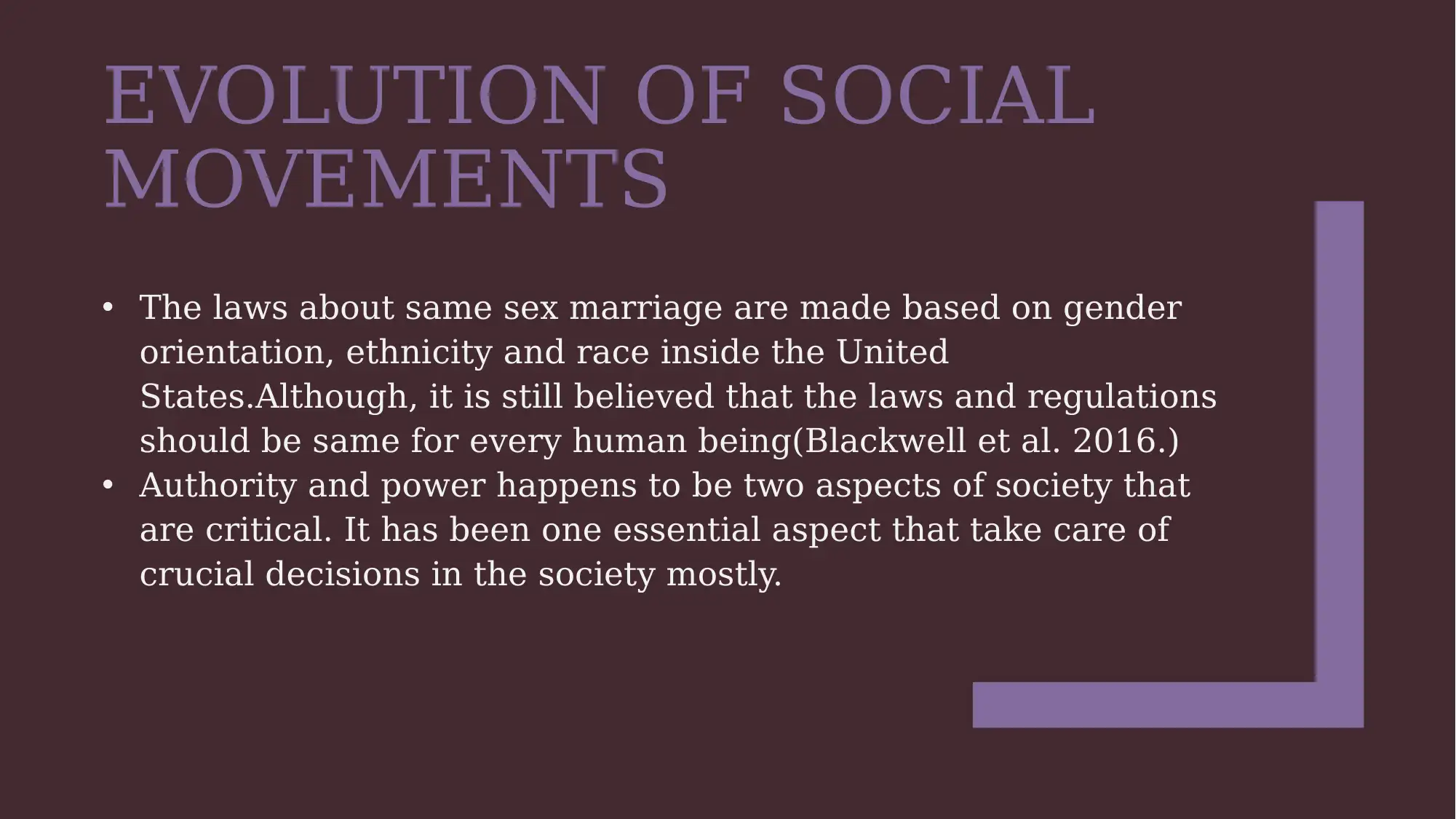

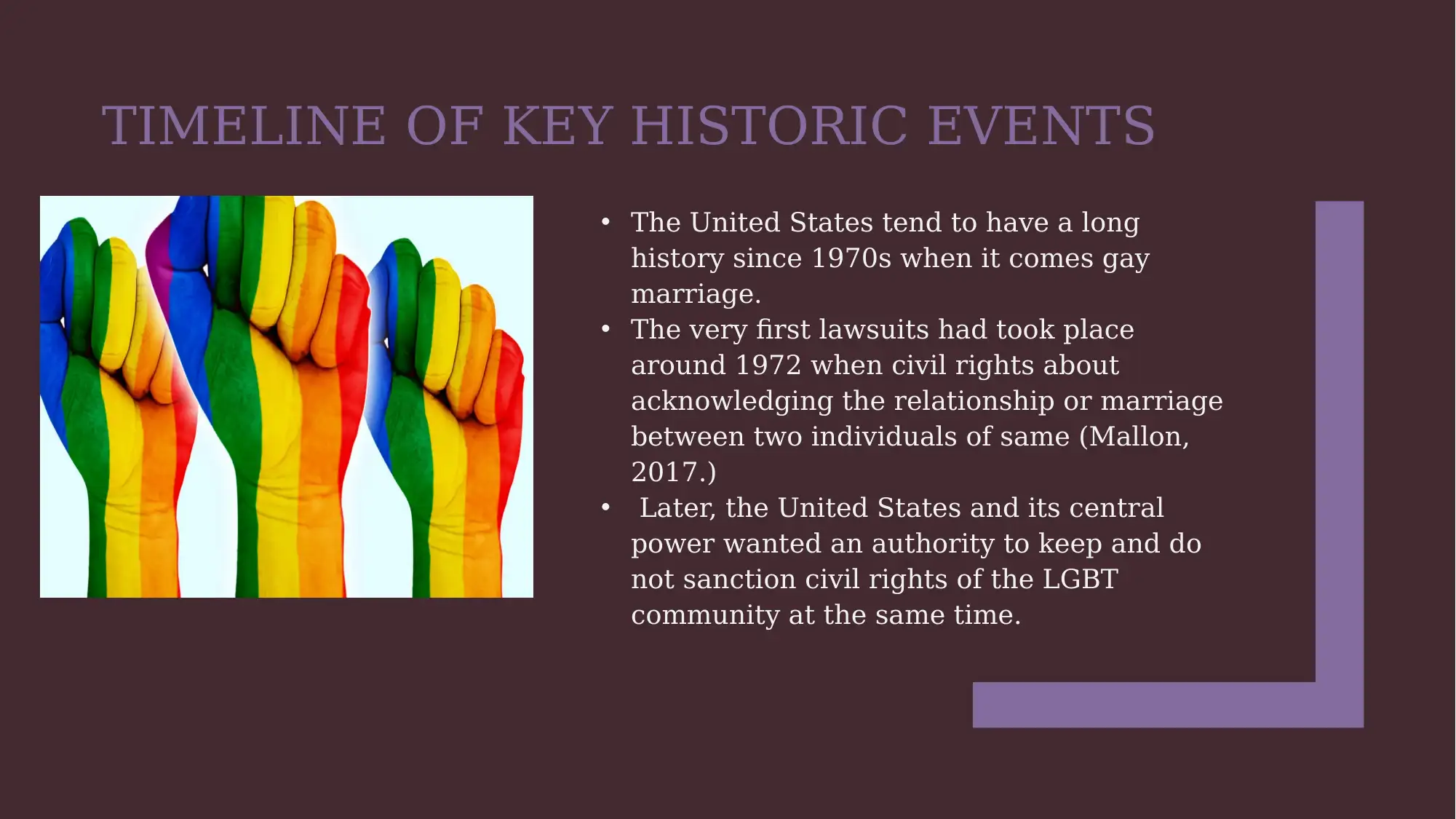
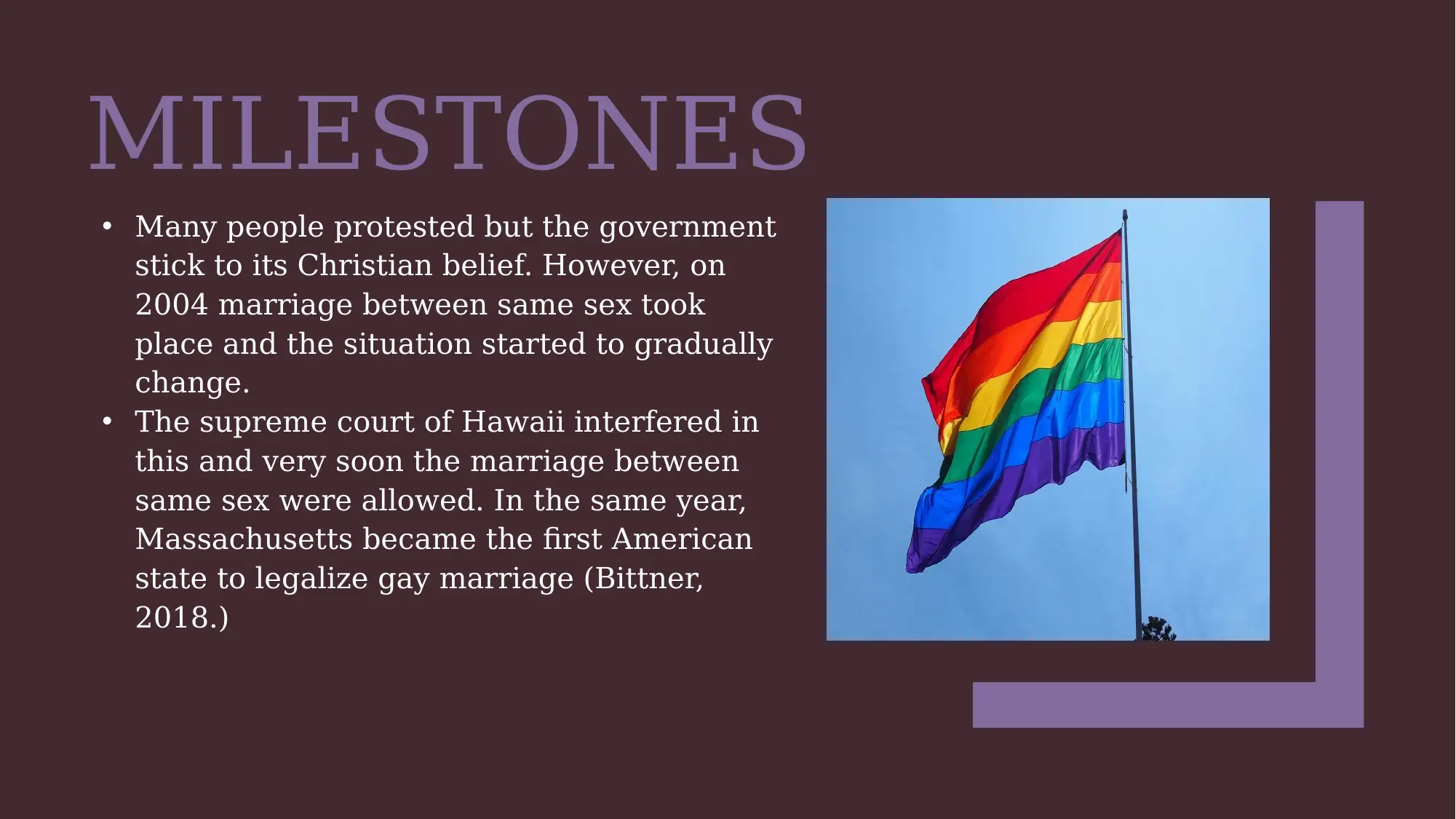
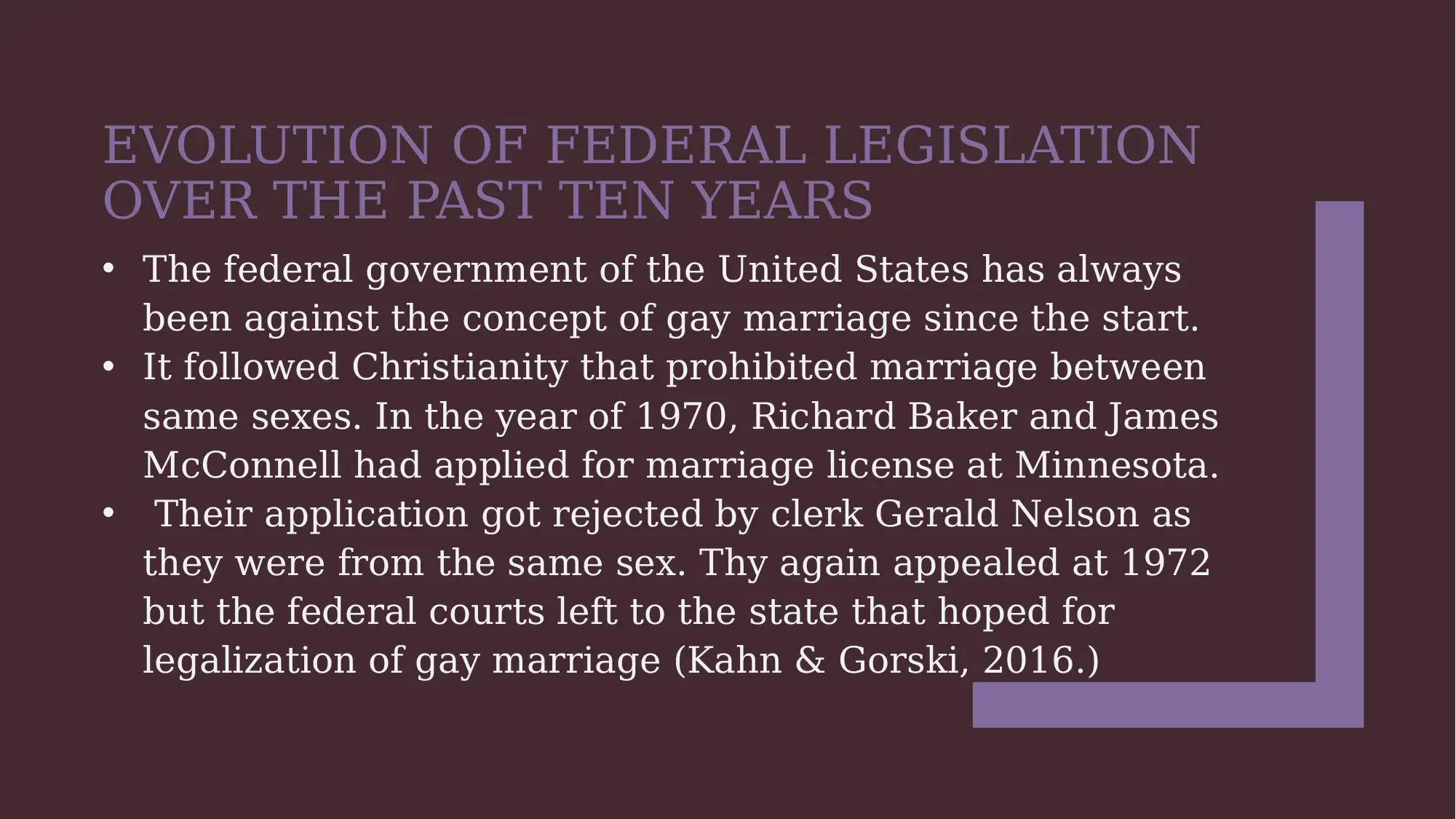
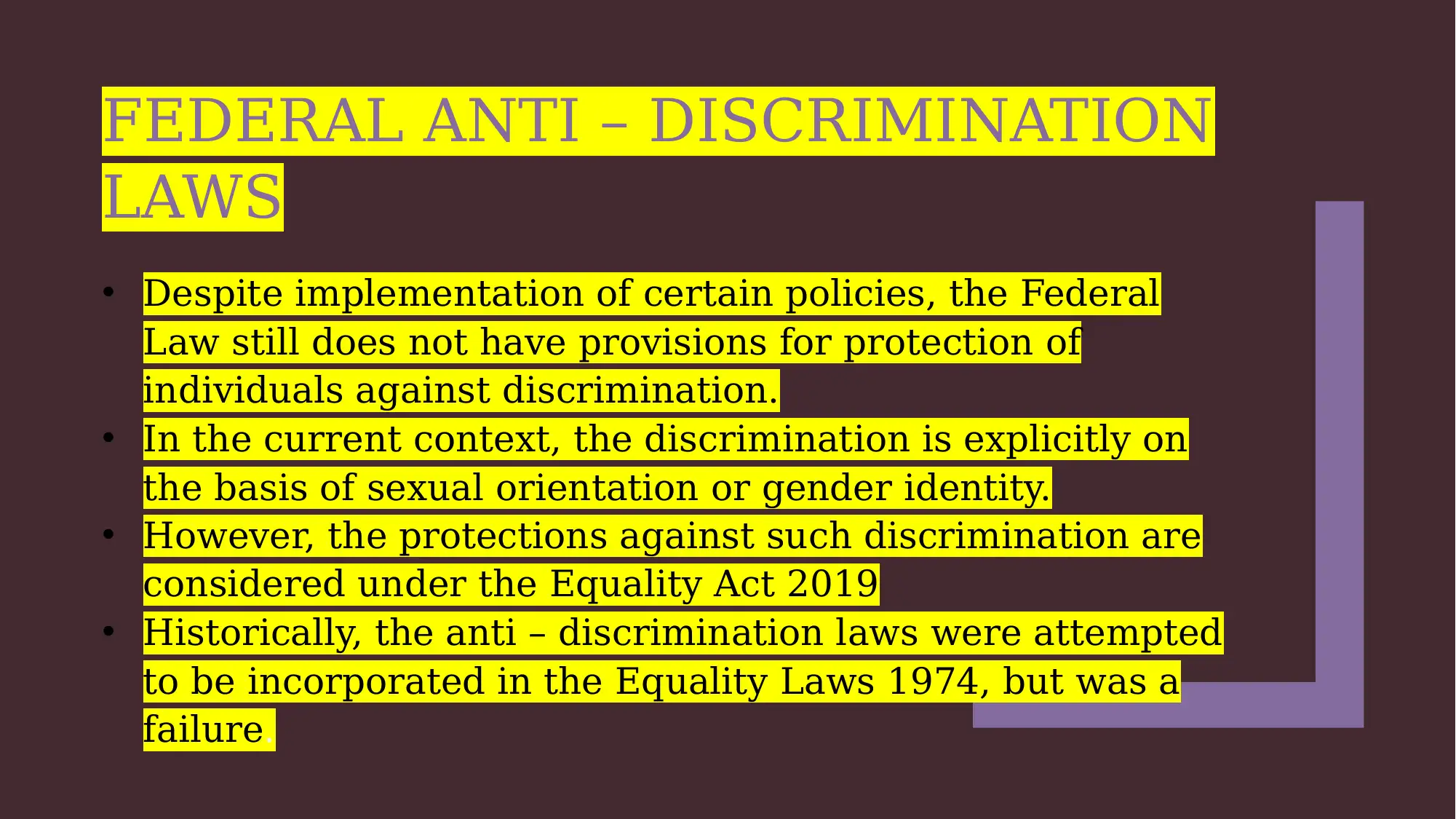
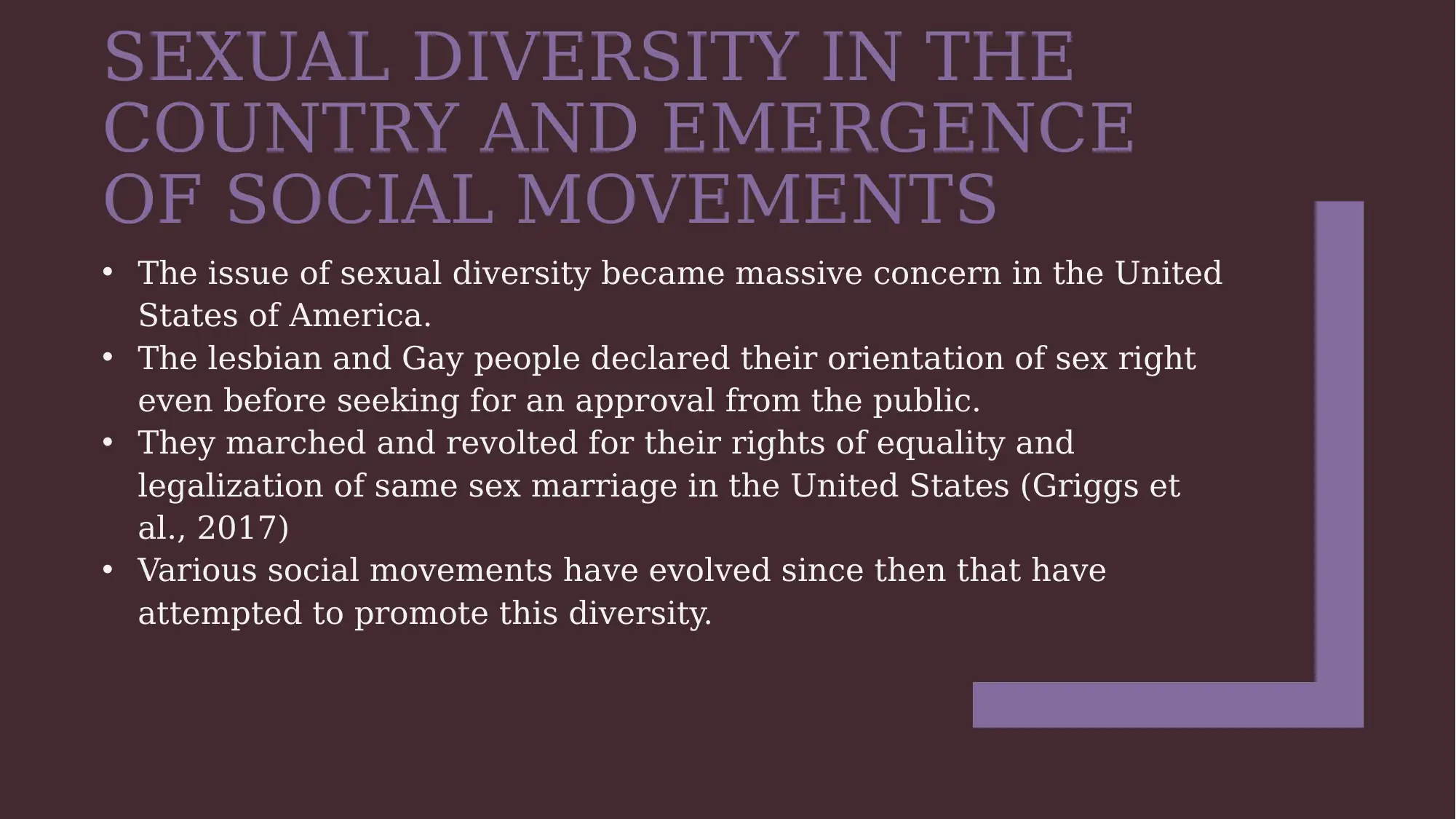
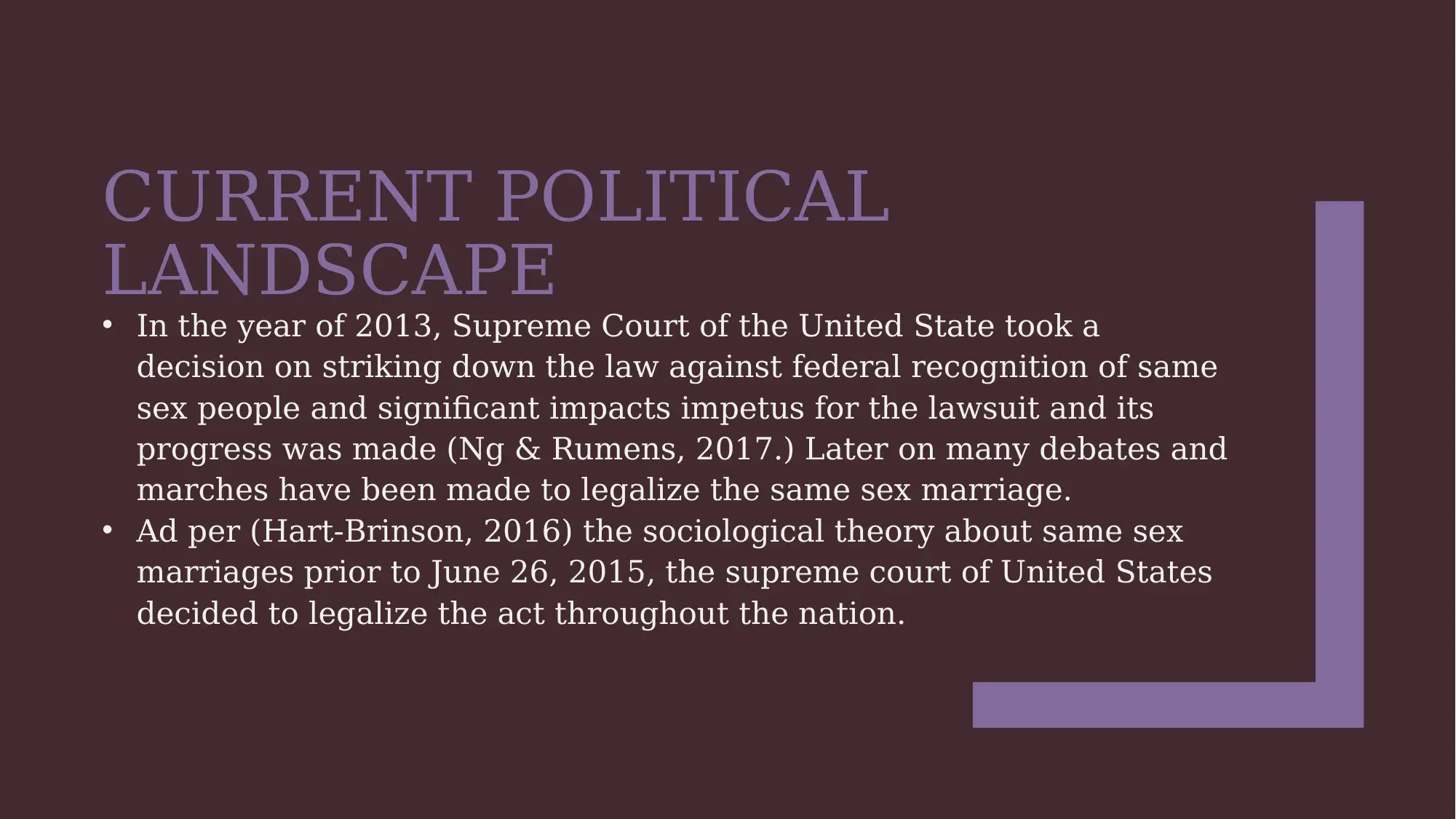
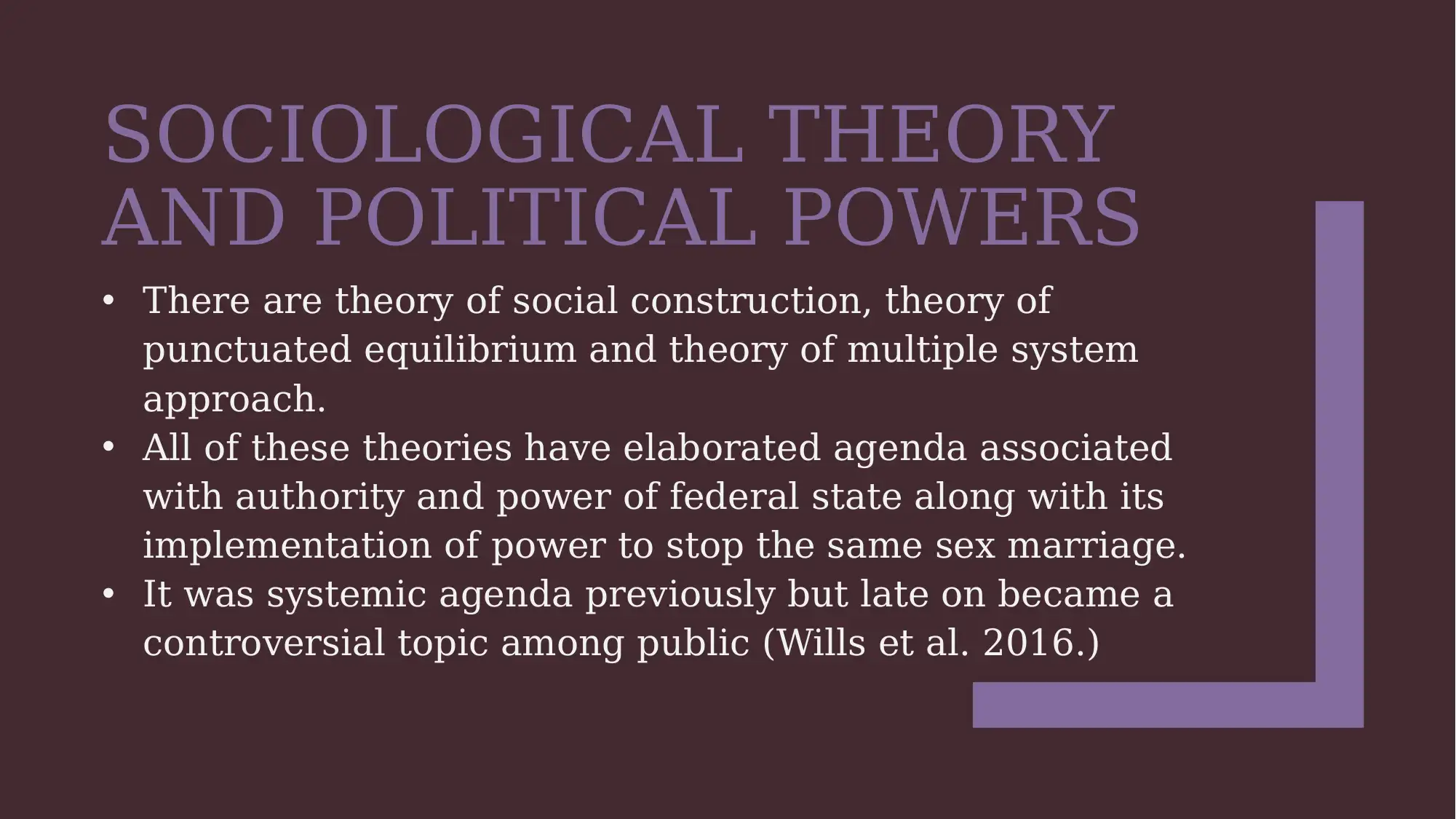
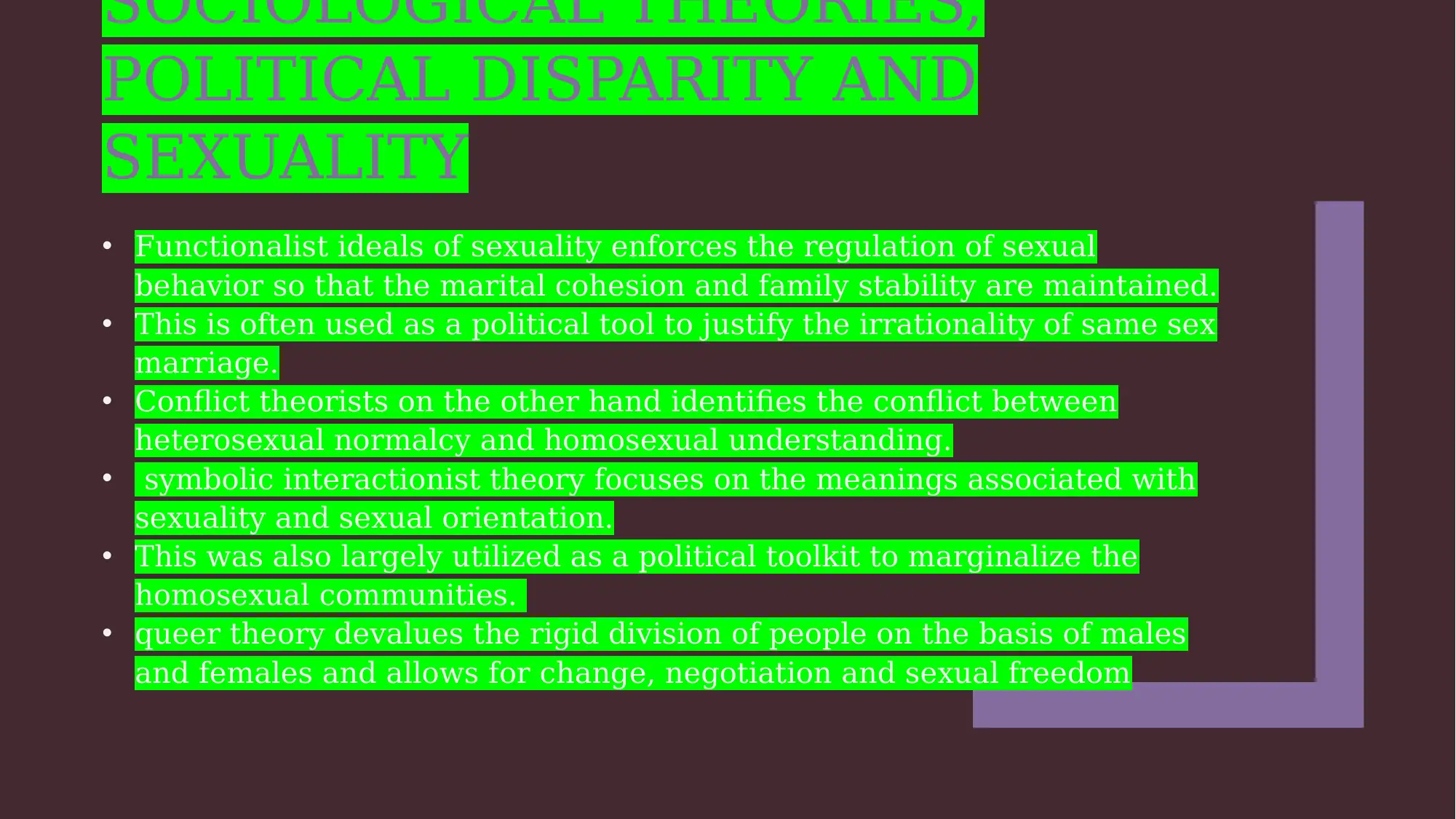
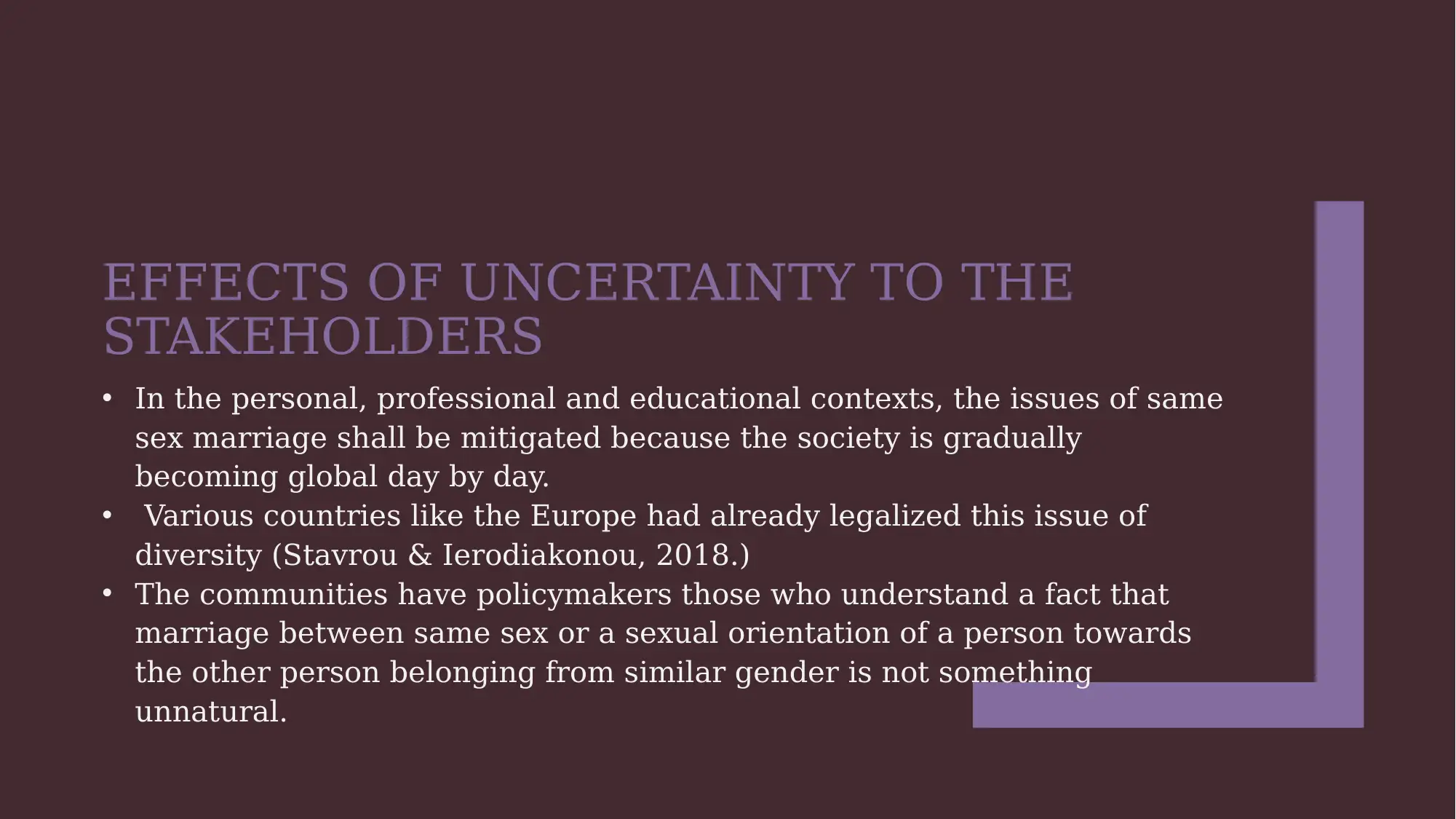






![[object Object]](/_next/static/media/star-bottom.7253800d.svg)